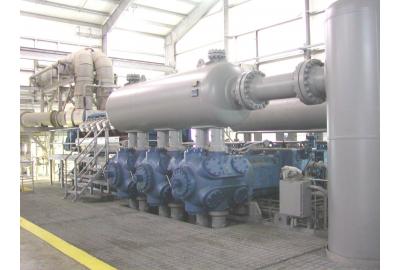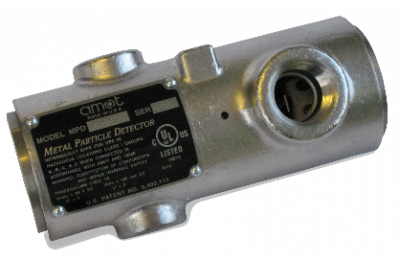When lube oil viscosity goes out of spec, compressor bearings begin to fail. The loss of proper lubrication leads to production downtime and high repair costs. This is particularly challenging for refineries and other petrochemical operations using large gas compressors where the operating environment can be extreme. By some estimates, a single compressor failure can cost $10,000 per day in lost revenue. Considering it would cost another $10,000 to rebuild a compressor, or more than $100,000 to replace a compressor, maintaining the health and performance of compressors is important to a refinery’s bottom line.
Many factors affect lube oil viscosity:
- Oxidation occurs when churning lube oil foams, exposing more oil to surface air and causing oxidation, which lowers viscosity and threatens useful lubricant life.
- Dilution results when lubricant oil is diluted with gas, such as methane, dropping viscosity.
- Bubbles form as foaming oil churns against the screws or vanes of the compressor, instantly dropping the viscosity of the oil.
- Contamination occurs when hydrocarbon vapors in the process mix with the lube oil.
The situation can be further aggravated by significant changes in temperature—such as during startup—that affect the viscosity of the underlying lube oil. A range of compressor failures can result. Rotary and thrust bearings can fail which leads to wear on the rotor assembly. Replacing bearings is less costly than a total rebuild or replacement, but either way, the plant faces downtime.
While refineries commonly perform monthly lab checks, viscosity changes are unpredictable, making these monthly checks insufficient to prevent bearing failure and subsequent plant downtime.
Preventing Bearing Failure and Downtime
Refineries are finding that that monitoring lubricant temperature is not enough to protect compressor bearings, especially in applications where process starts and stops occur. Despite using separators, the lubricant can become diluted by gas carry-over or contamination. If left unchecked, this can cause problems, especially during subsequent start-ups.
Refineries can protect their large hydrogen screw compressors to improve refinery uptime by adding in-line lube oil viscometers to all their new and existing units. In-line, in situ viscosity monitoring provides plant operations with real-time data on the lubricant viscosity.
The VISCOpro 2100, along with a 301 in-line viscometer sensor, provides real-time continuous monitoring of the compressor bearing lubrication fluid throughout equipment operations and between regular oil lab analysis intervals. This saves lab and technician time and reduces the chance of damaging the equipment. It is particularly beneficial in high-value equipment used in processes where the costs of failure are high.
Learn about AMOT’s oil condition monitoring solutions and contact us to see how we can help you reduce downtime.












